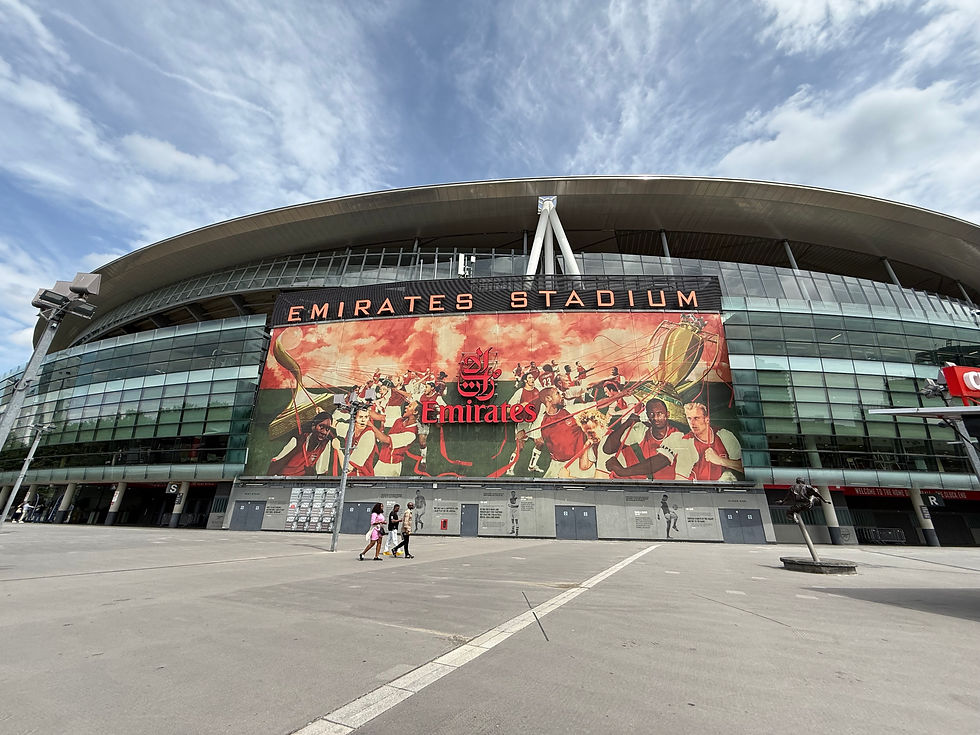FEMALE NUTRITION DISCUSSION MARKS WOMEN'S EURO
- Archie Tooth

- Jul 7, 2025
- 2 min read

With the UEFA Women's EURO under way in Switzerland, Her Game Too was invited to attend a discussion on nutrition called ‘Fuel The Field’, organised by Lidl at Arsenal's Emirates Stadium.
Broadcaster Kelly Cates hosted the event along with former Lioness Fara Williams, footballer, content creator Freda Ayisi and nutritionist Doctor Hazel Wallace.
Together, they led an interesting discussion on how women and girls can better fuel their bodies for increased performance in everyday life and for long-term wellbeing.
Littered throughout the discussion was new research supporting their experiences of female-focused sports nutrition to further uncover this growing issue.
Fara reminisced on her early playing days, long before nutritional guidance had first broken into the women’s game.
She highlighted that her time playing for England was like “an all-inclusive holiday,” with access to higher-quality foods an alien experience during training camps.
She told the discussion: “During my time with the Lionesses, we never had access to nutritionists and unfortunately that level of support is still out of reach for many female players today.”
Lidl found from a survey of 2,000 Brits that almost 80% of women have never received specific guidance on how to fuel their bodies for exercise - which creates a major obstacle in women’s football.
Dr Wallace said: “Nutrition advice for women is often too focused on restriction.
"It focuses on cutting carbs, fats, or calories, rather than supporting what women’s bodies actually need.
“Women have distinct nutritional requirements due to hormone fluctuations across the menstrual cycle, pregnancy, and menopause.
"Most mainstream advice overlooks these differences, leaving many women under-fuelled, underperforming, and with worsening symptoms of conditions like premenstrual syndrome.
“Hormone shifts throughout the month impact appetite, mood, sleep, and how the body processes carbs, protein, and fat.
"Understanding how to adjust nutrition in line with your cycle can make a big difference in energy levels, performance, and overall well-being.”
The survey also found that one in three women are missing out on sport during their menstrual cycle.
Dr Wallace added how pivotal schools, colleges and universities are in informing girls how to better fuel their bodies; whereas men predominantly rely on social media for their nutritional advice - a method Dr Wallace does not recommend for educating individuals on correct nutrition.
Freda discussed her experience of playing at academy level and beyond: “I definitely felt the most clueless about nutrition when I was a teenager, playing multiple times a week after school and at the weekends made me feel so tired - not to mention trying to keep my energy up and battle my hormones around my period.”
The survey also found that of those that exercise regularly, a staggering 71% felt more needed to be done to educate people on female nutrition in sports, while over 67% had never been given tailored guidance to support their training and recovery.
These concerning figures highlight the importance of implementing more accessible education around nutrition nationwide.

_edited.png)


